What Happens If You Don’t Wash Your Hair – Side Effects
Get your facts right before you jump on the no-poo haircare bandwagon in your routine.
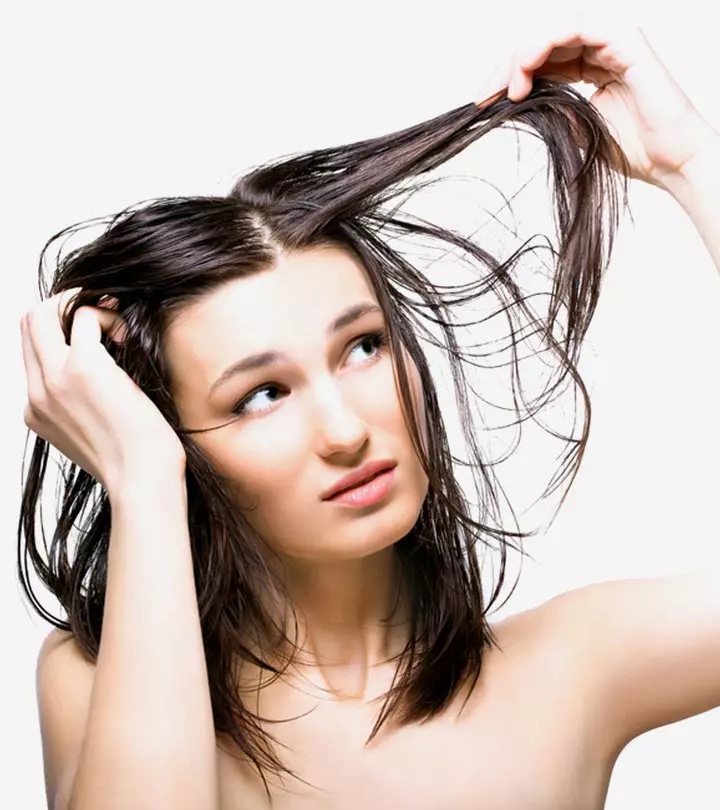
Image: Shutterstock
Stop washing your hair if you want to join the no-poo movement. The no-poo or no-shampoo movement is all about not using shampoos that are loaded with harmful chemicals and strip the hair of its natural oils.
Reducing the use of chemical-loaded products has taken off in full power in the last few years. Various chemicals, like sulfatesi A group of chemicals used in cosmetics for their emulsifying properties, whose prolonged use may result in a dry or irritated scalp. and phthalatesi A class of chemicals used as gelling agents in some shampoos that may disrupt your hair cycle, resulting in hair loss. , cause hair damage and make the scalp dry, flaky, and irritated. Many videos have surfaced showing amazing results of people who have ditched shampoo and yet have gorgeous, moisturized, and luscious hair!
But, this method may not be everyone’s cup of tea. Feeling fresh and smelling good after a hair wash can help rejuvenate you and maintain hygiene.
Read this post before you switch to the no-poo hair care routine. Let’s dive deep and learn the science behind not washing your hair and if you can still have healthy hair. Scroll down!
In This Article
How Often Should You Wash Your Hair?
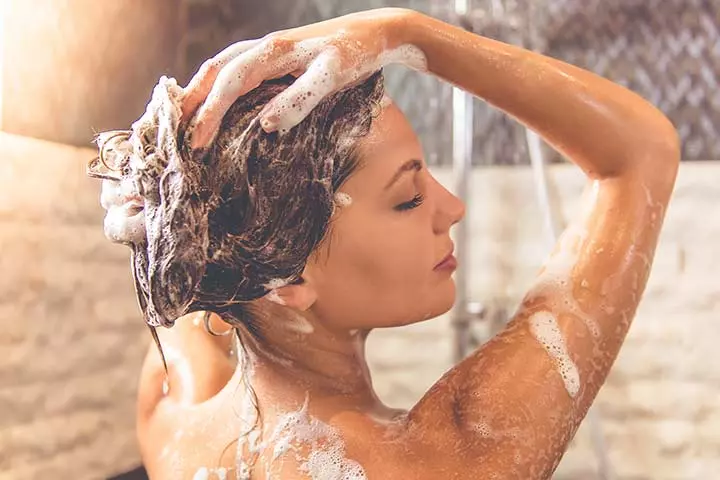
When you stop washing your hair, the first thing that shows up on your scalp is sebum or oil, followed by grime and dirt. It may even include residue from hair styling products and bacteria build-up. However, the experience differs across hair types.
Many factors determine how often you need to wash your hair. Some common ones include:

- Genes
Your genetic composition is the principal determinant of the type of hair you possess.
It indicates how much sebum your glands will produce. Ultimately, it will also decide when your hair needs a wash.
- Climatic Conditions Of Your Area
If you live in a hot and humid area, you may have to wash your hair more frequently than those living in a dry region.
This is because the humidity in the air tends to weigh down your hair, making it greasy and hard to manage.
- Hair Texture
Those with curly locks are more susceptible to an oily scalp and dry hair. Buildup on the scalp can weaken hair roots and even lead to inflammation. You may want to wash your hair at least twice a week to avoid dandruff and hair loss (1). In contrast, oil build-up in people with straight hair can start showing up within two days of washing.
 Quick Tip
Quick Tip- Hair Styling Products
If you use styling products like hair gel, conditioner, and dry shampoo, their residue can build up on your scalp. Often, the only way to rinse them off is with shampoo. Simply put, the number of hair products you use also determines when your hair needs a wash.
- Exercise Routine
People who follow an intense exercise routine may have to wash their hair more often than others.
Physically active people sweat a lot and are more prone to dirt build-up, scalp inflammation, and infections. Skipping hair washes for too long can make their hair smell foul.
- Hormonal Fluctuations
The hormonal changes in the body are also responsible for deciding how much oil your scalp produces. For instance, the sebaceous glandsi Glands attached to the hair follicles that produce sebum, a fatty substance that hydrates the hair. produce extra sebum at the time of puberty (2).
- Medications
Sometimes, even the medication you take can affect how often you require a hair wash.
Some medicines alter the way your body produces sebum, leading to an oily scalp.
Now, if you are wondering if it is OK to not wash your hair for 15 days, then you might need to know that it depends on various factors like hair type, lifestyle, and personal preference. For most people, waiting this long may lead to several issues like a greasy and itchy scalp, bad odor, and other potential skin conditions. Excess sebum buildup can make your hair appear greasy and lead to an irritable scalp. Accumulated dirt and sweat can also result in odor and potential skin issues like scalp acne. However, some hair types, like very dry or curly hair, can go longer between washes without issues. But if you have an oily scalp, and don’t want to wash your hair too many times in a we since it strips your hair off its natural sebum, you can try healthier alternatives. You can use a mild shampoo and conditioner or a co-wash to maintain your hair health. It’s essential to find a washing routine that suits your hair and lifestyle. These determining factors influence when your hair starts looking oily enough to require a wash. But, will shampooing every day give you soft and silky hair? Let us find out!
These determining factors influence when your hair starts looking oily enough to require a wash. But, will shampooing every day give you soft and silky hair? Let us find out!
Key Takeaways
- Not washing the hair regularly with shampoo has certain advantages like cost and time saving, reduced exposure to chemicals, and less risk of hair damage.
- However, it may increase the risk of scalp irritation and infections due to the buildup of sebum, dirt, and sweat.
- Slowly extending the days between shampoo washes, combing and brushing the hair regularly, and washing hair with plain water are good practices if you choose to skip the shampoo.
What Happens When You Wash Your Hair Every Day?
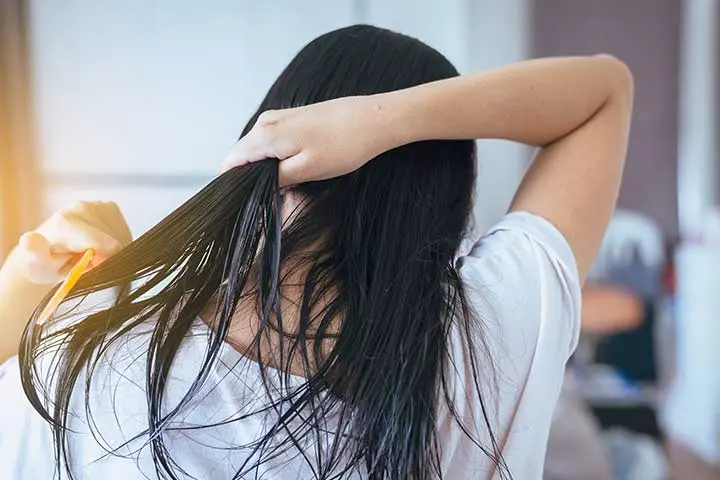
On the whole, shampooing your hair every day or too frequently does more harm than good. It removes the layer of oil and good bacteria from the scalp (3).
Contrary to popular belief, over-greasy hair is also usually a result of over-washing with conventional shampoos. The chemical additives used in most shampoos are rough on your locks. They completely strip away all the natural oils from your hair, drying it out and causing it to break (4). As a defense mechanism, your scalp starts producing more oil to combat the dryness. This creates a cycle of more washing and more sebum. The same goes for washing your hair with soap, as it leads to product buildup on the scalp, causing more problems. So, if you’ve been thinking of alternating between soap and shampoo, we advise against it.
By prolonging the period between hair washes, you can give your scalp time to adjust to its natural way of producing oil. Essentially, you give your mane some breathing room to detoxify from the chemical-laden hair products, thus keeping it healthy.
If you want healthier hair and are considering joining the no-poo movement, here are some benefits to keep in mind.
Perks Of A Shampoo-Free Life
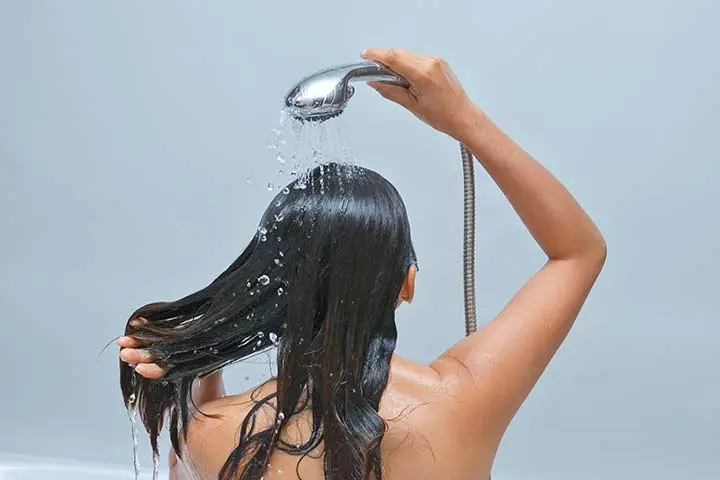
There are many alternatives to traditional shampooing such as the now-popular No-Poo trend. The benefits of choosing to wash hair without shampoo include:
You avoid harmful chemical-filled shampoos, thus preventing your hair from further damage.
- You avoid harmful chemical-filled shampoos, thus preventing your hair from further damage.
- You do not rob your tresses of all the natural oils that your scalp produces. Therefore, your hair retains moisture for longer.
- You use less water in the shower.
- One of the major appeals of the no-poo movement is that it is low maintenance. You save money that you would otherwise spend on expensive shampoos.
- You also cut down on the time spent washing, drying, and styling your hair daily.
- After the initial adjusting period, you may end up with a healthier-looking and shinier mane.
Ash Trevino, a lifestyle blogger, had gone 10 days without washing her hair to observe what happened. After initial problems with hair texture, as she continued to comb her hair more frequently to distribute her natural hair oils, she made surprising observations. “By day 8 I realized that all the fancy hair masks I had ever done did not compare to how my hair felt after just letting my natural oils do their thing for a while (i),” she said. Her conclusion was that natural bristle brushes and more frequent and mindful hair brushing can help one transition to shampoo-free hair care routines without compromising hair quality.
Extending the periods between hair washing can be healthy for your hair in many ways. But, what happens when you stop washing your hair? Find out in the next section.
Side Effects Of Not Washing Your Hair
Be it natural rinses, co-washes, or simply stretching your wash period – not washing your hair comes with some drawbacks. Let’s find out the challenges of skipping the shampoo.
1. Oil, Dirt, And Product Build Up On The Hair And Scalp
As mentioned earlier, the first thing you will notice after some days of not washing your hair is oil.
The scalp’s natural oil (sebum) makes the hair softer. However, as you transition to the no-poo way of life, the oil will gradually attract dirt and dust from the surroundings into your hair.
Furthermore, with no shampoo to rinse them off, all the hair products you use will start building up on your scalp. Not only will they make your hair clump together but also make it a home for a whole lot of bacteria. In other words, your hair may become a dirty mess.
2. That Annoying Smell In Your Hair
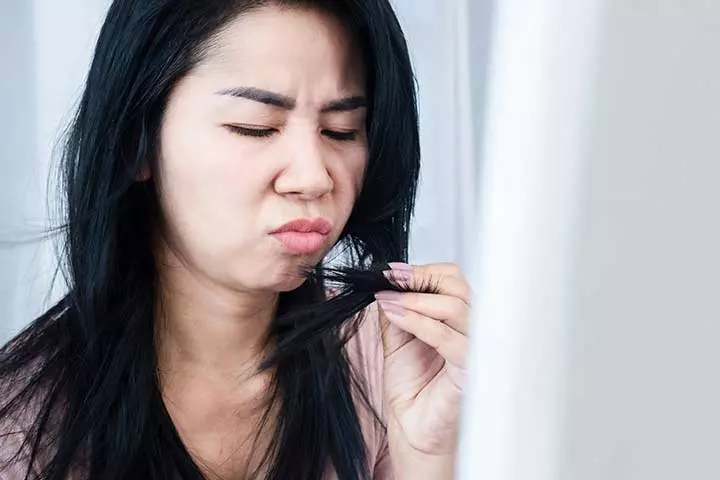
One downside to not washing your hair is that you will notice a foul odor after a few days. With all that grime and oil on your scalp, your hair may start giving off a musty, sour, or milk-like smell.
Though the smell is harmless, it can bother physically active folks who sweat a lot. If you spend hours at the gym, you may find that your hair starts smelling within just a couple of days of a hair wash.
3. Your Scalp Starts To Hurt
After a few days of not washing your hair, your scalp may become tender and painful to touch. Even a little pulling of hair can hurt your scalp. However, there is little empirical evidence that explains the pain, and the reasons may vary.
It is possible that the scalp oils weigh down your hair, and adding a tight updo or ponytail to it can add more pressure on the nerve endings near the hair follicles.
Even yeast or bacterial build-up can result in scalp inflammation and tenderness. A greasy scalp is the perfect breeding ground for a specific fungus called Malassezia furfur (5). This fungus feeds on sebum and can potentially irritate your scalp.
If you are concerned about scalp pain, try using a boar bristle brush to distribute the oil evenly throughout your hair. A loose braid hairstyle may also help in combating scalp discomfort to some extent.
4. Ingrown Hair And Slower Hair Growth
When you stop using shampoo, you do not get to massage and scrub your scalp as usual. It may result in debris and clogged pores that cause ingrown hair, which can be an annoying and painful experience.
Moreover, the longer you go between washes, the more dirt and oils build up on your scalp, which can cause ingrown hairs.
This scalp build-up also has the potential to congest your scalp. As a result, it can cause impeded hair growth and even stop your hair from growing completely after a while (6).
5. May Result In Dandruff And Itchy Scalp
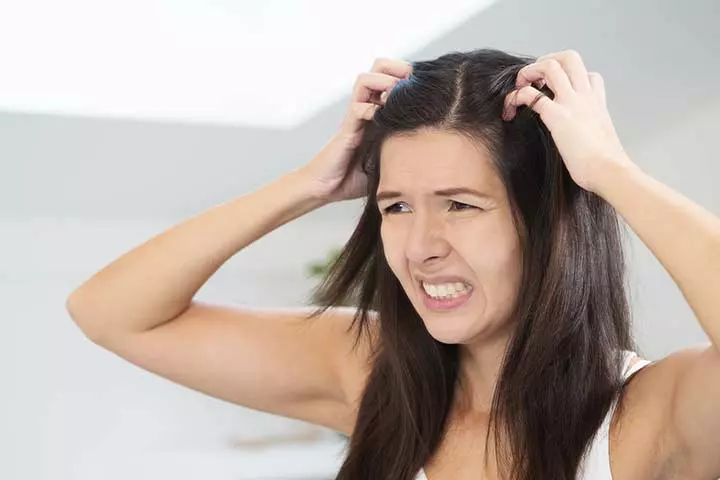
Though dandruff is usually a dry scalp issue, even a normal scalp can develop some degree of flaking within 1 or 2 weeks if it is not washed (6).
Shampoo helps to clear off the yeast that is often present on the scalp. However, when you stop washing your hair, there is an increase in yeast formation. This increase in yeast promotes the occurrence of dandruff flakes.
An itchy scalp is either the consequence of scalp inflammation that comes with dandruff or your head simply re-adjusting to the new hair care routine.
Reducing the frequency of hair washes can yield better results for your skin, hair, and scalp, provided you give it enough time. But, the initial grease and grime may discourage you from going ahead.
Here are some ways you can prolong the time between washes and keep harmful chemicals out of your hair.
How Can You Stretch The Time Between Hair Washes?
If you are someone who washes hair daily, try this step-by-step guide to make your transition easier:
- Start by washing every other day.
- Then, you can gradually keep increasing the gap by another day.
- If your hair only feels greasy or dirty, keep going as you are not harming your hair.
- If you notice an itchy scalp or redness, contact a dermatologist.
You can try out the following tips to further extend the time gap between hair washes:
- Embrace The Oil In Your Hair
Our minds are habituated to the fact that only squeaky clean, freshly washed hair looks the best. As a result, we overlook the significance of well-moisturized hair.
Hair that has no sebum at all tangles easily and looks dull and rough (7). But, a little natural oil in the hair works best for its health. So, you need not wash it off the moment you see it.
- Massage And Brush Your Hair
The oil build-up on the scalp is heavy on your roots. The sebum does not move down the length of your hair initially, thus resulting in flat hair on top and frizz towards the ends.
To prevent your roots from going limp, you need to distribute the oil evenly throughout your hair. Massage your scalp with your fingertips and brush your hair, starting from the roots and moving to the ends.
This practice will improve the hair’s texture and appearance for a few more days before it is time to shampoo.
- Go For Natural Rinses In Between Washes
You can rinse your hair with plain water. This allows you to rinse away some dirt without disturbing the natural oils on your scalp.
 Quick Tip
Quick Tip- Be Patient And Only Wash Your Hair When Needed
It is hard to resist washing your hair, particularly when you are not used to even a slightly greasy feeling in your locks. However, for the health of your hair, wash it only when it needs rinsing rather than whenever you feel like it. Not giving up and being patient will help you push another day without a hair wash.
Follow these tips to maintain a healthy scalp, which is the foundation of lush, thriving hair. After all, a well-cared-for scalp ensures that hair follicles remain unclogged and nourished, reducing the risk of issues like dryness, dandruff, and irritation. Proper scalp hygiene and hydration prevent hair breakage and encourage consistent and healthy hair growth.
Infographic: A Guide To Washing Your Hair Correctly
Frequent hair washes can do more harm than good. As a result, you must identify the ideal period between hair washing as well as the right way to wash it. The former is determined by your hair type, environmental factors, and the type and frequency with which you use hair styling products.
For the latter, check out the infographic below and learn the steps to wash your hair correctly so that you can make the most of your shampooing experience.
Some thing wrong with infographic shortcode. please verify shortcode syntax
Regular shampoos contain harsh ingredients like parabensi Artificial preservatives used in hair products that can irritate the scalp, dry out the hair, and produce flakes. and sulfates that do more damage than good. This is why the no-poo movement has been garnering so much attention. This movement steers you away from using shampoo and taking more time between hair washes. The decision to stop washing your hair or reducing hair washes depends on your hair type and texture. But, as mentioned above, there are pros and cons to this movement.
While you can use rinses and co-washes to keep your hair clean, these products are not as strong as shampoo. This may lead to sebum and product buildup on your scalp, causing an unwanted odor and other disadvantages, making it more challenging to fix a greasy scalp and keep your mane clean. In some cases, not washing your hair regularly could lead to scalp inflammation or infection affecting overall hair and scalp health.
Frequently Asked Questions
Is it okay to wash your hair once a month?
It depends on your hair type, texture, and amount of sebum production. However, it is important to maintain your hair wash schedule once you discover what works best for you.
Is it okay to get your hair wet but not wash it?
Yes. You can wet and rinse your hair and not wash it, but ensure you don’t leave it wet for too long.
Does washing your hair once a week help it grow?
No. It is a myth that dirty hair grows faster. You should wash your hair 2-3 times a week to keep it clean and healthy.
Illustration: What Happens If You Don&039t Wash Your Hair - Side Effects
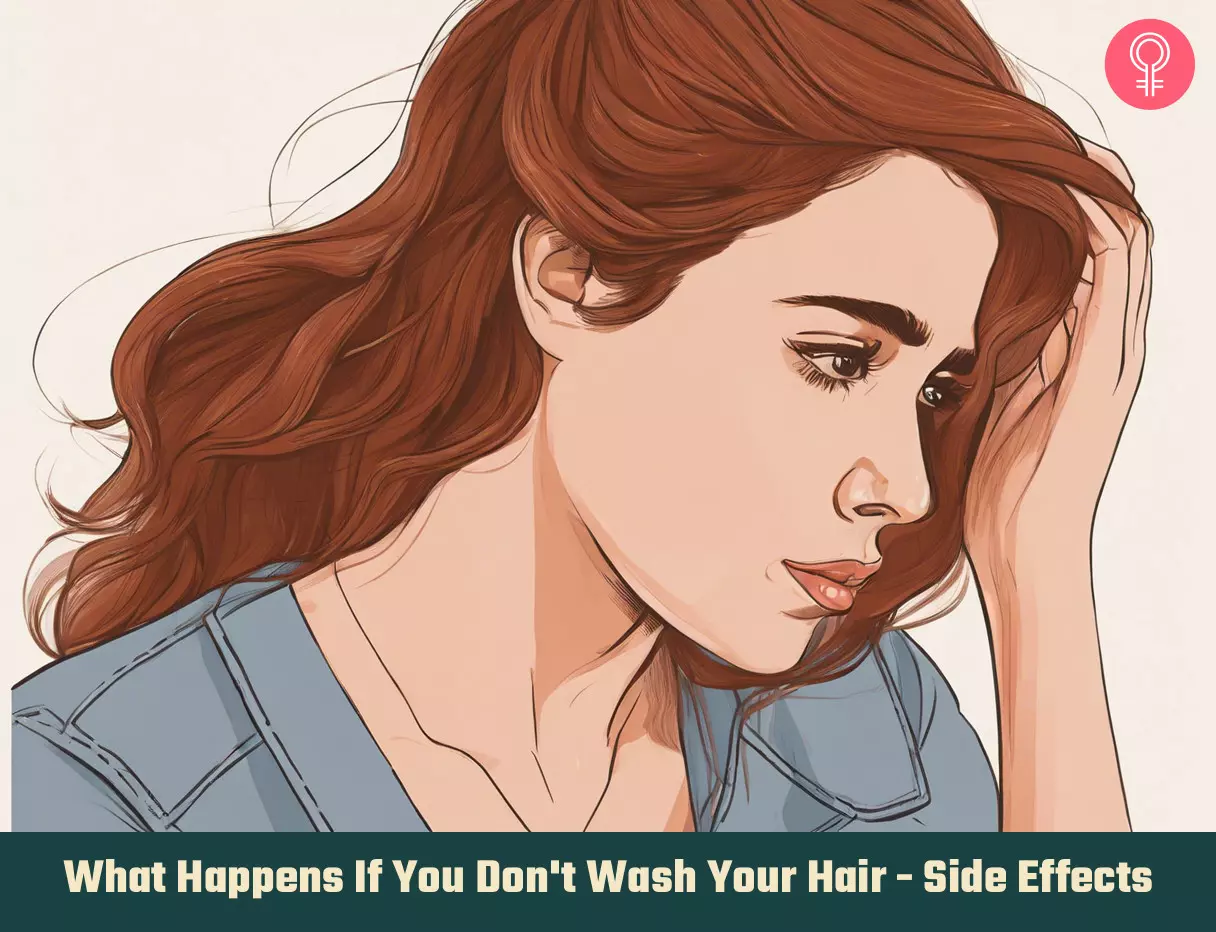
Image: Stable Diffusion/StyleCraze Design Team
If you don’t wash your hair for a year, a nasty surprise is waiting for you! Greasy, matted locks, an itchy scalp, and bacteria – don’t let it get that far! Watch the video below to know more!
Personal Experience: Source
StyleCraze's articles are interwoven with authentic personal narratives that provide depth and resonance to our content. Below are the sources of the personal accounts referenced in this article.
i. I didn’t wash my hair for 10 days and here’s what I learnedhttps://ashtrevino.medium.com/i-didnt-wash-my-hair-for-10-days-and-here-s-what-i-learned-81170778bed3
References
Articles on StyleCraze are backed by verified information from peer-reviewed and academic research papers, reputed organizations, research institutions, and medical associations to ensure accuracy and relevance. Read our editorial policy to learn more.
- Hair Cosmetics: An Overview.
www.ncbi.nlm.nih.gov/pmc/articles/PMC4387693/ - Dermatological problems of the puberty.
www.ncbi.nlm.nih.gov/pmc/articles/PMC3834713/ - Showering Daily – Is It Necessary?
www.health.harvard.edu/blog/showering-daily-is-it-necessary-2019062617193 - HAIR GROWTH HERO Natural Solutions For Healthy, Happy Hair Restoration.
www.academia.edu/11234362/HAIR_GROWTH_HERO_Natural_Solutions_For_Healthy_Happy_Hair_Restoration - Seborrheic Dermatitis and Dandruff: A Comprehensive Review.
www.ncbi.nlm.nih.gov/pmc/articles/PMC4852869/ - Scalp Condition Impacts Hair Growth and Retention via Oxidative Stress.
www.ncbi.nlm.nih.gov/pmc/articles/PMC6369642/ - Essentials of Hair Care often Neglected: Hair Cleansing.
www.ncbi.nlm.nih.gov/pmc/articles/PMC3002407/
Read full bio of Dr. Shruti Chavan
Read full bio of Arshiya Syeda
Read full bio of Ramona Sinha
Read full bio of Medha Deb





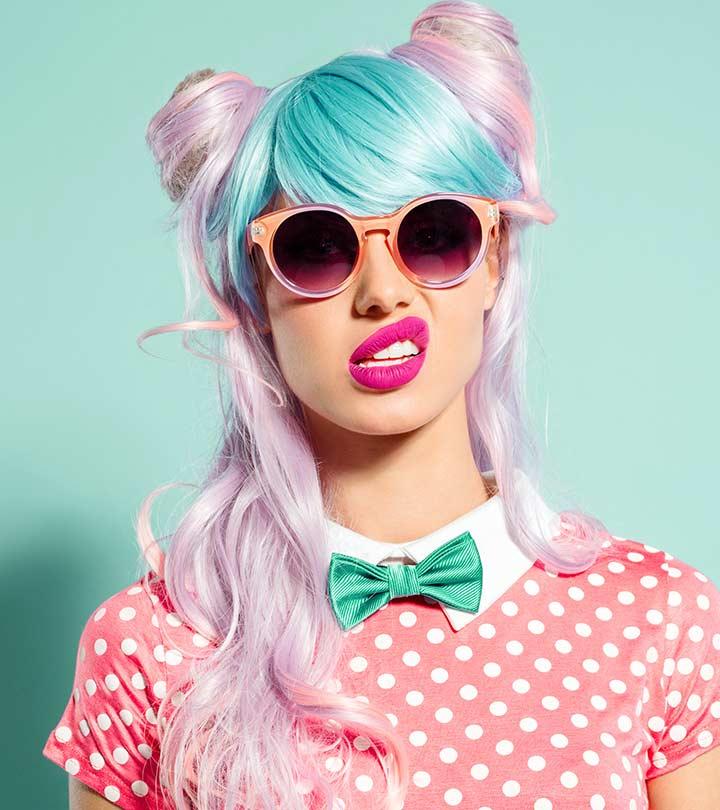
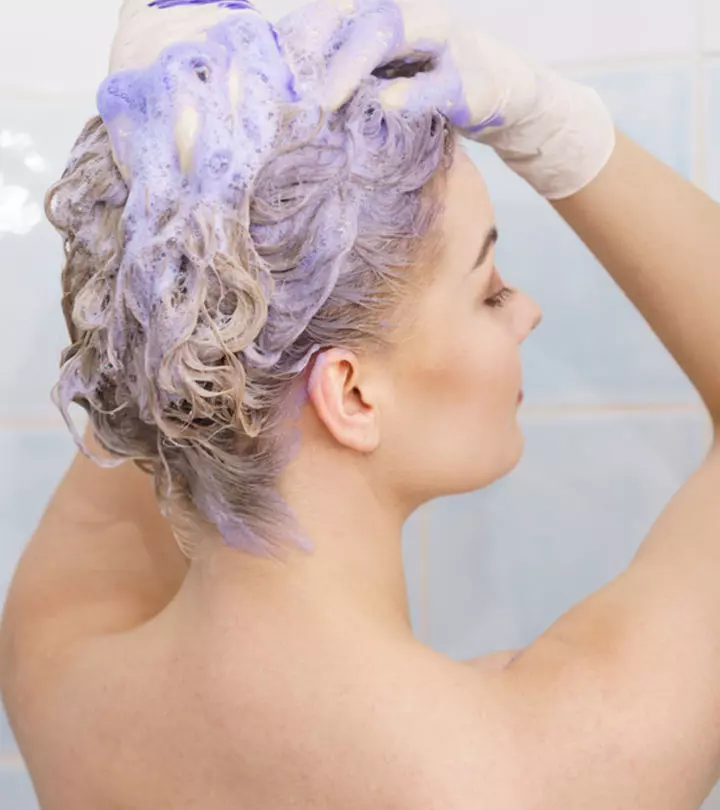
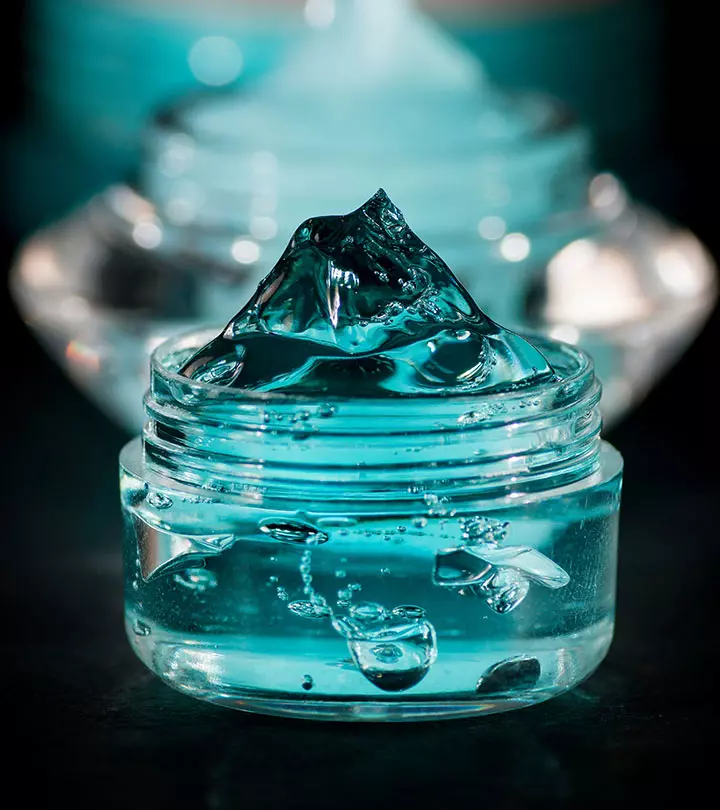
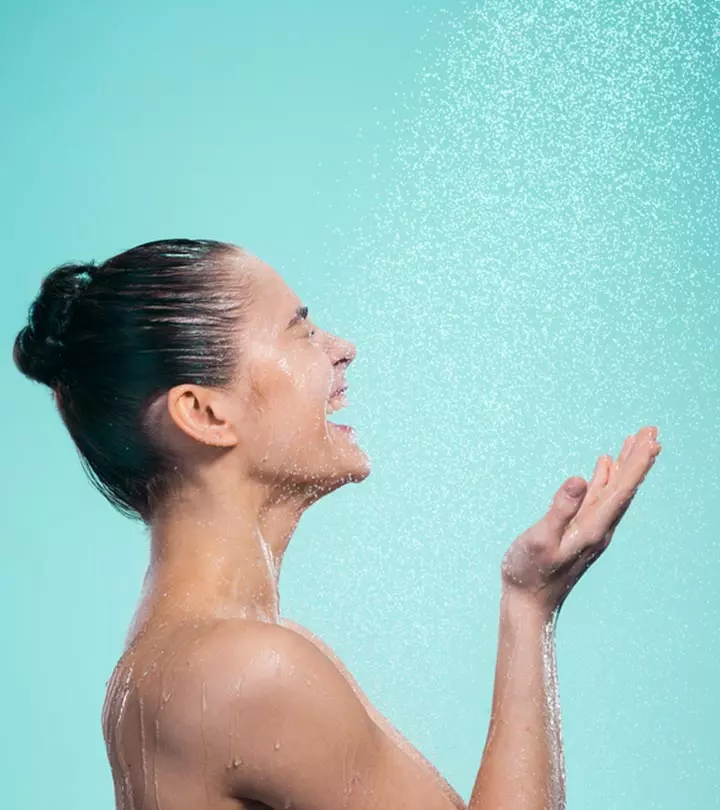
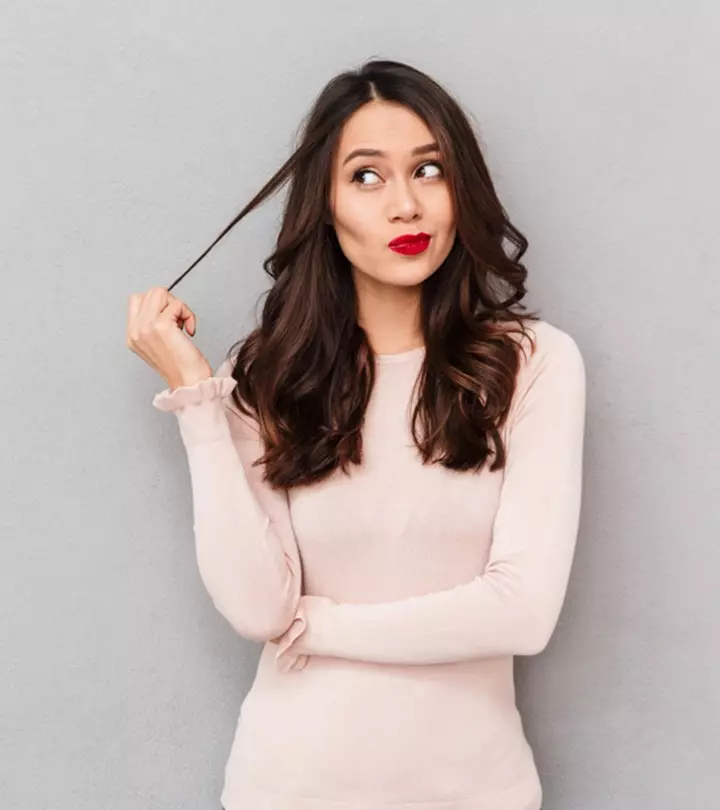
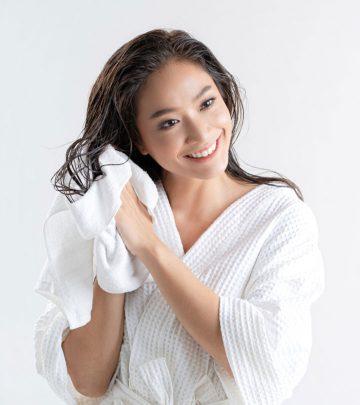
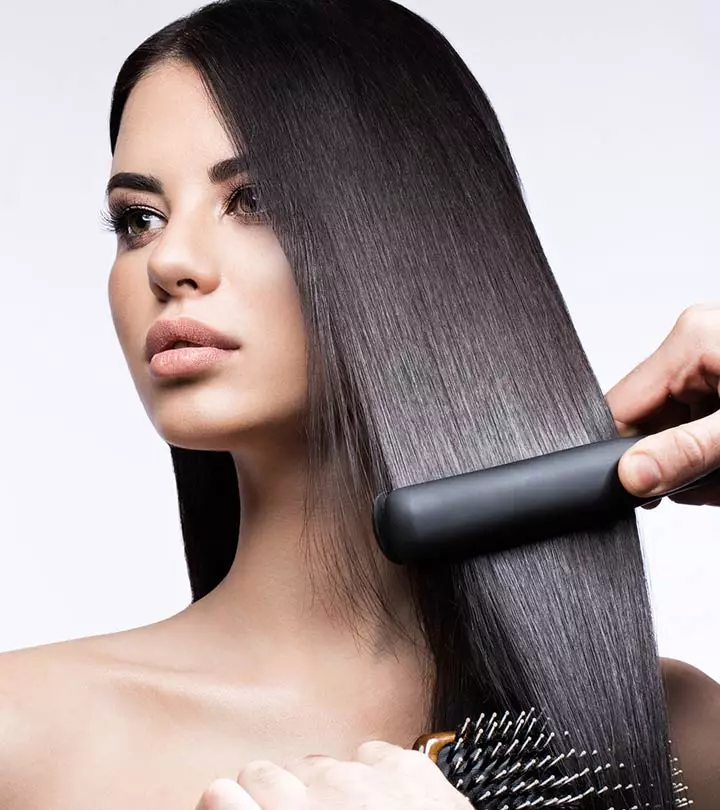
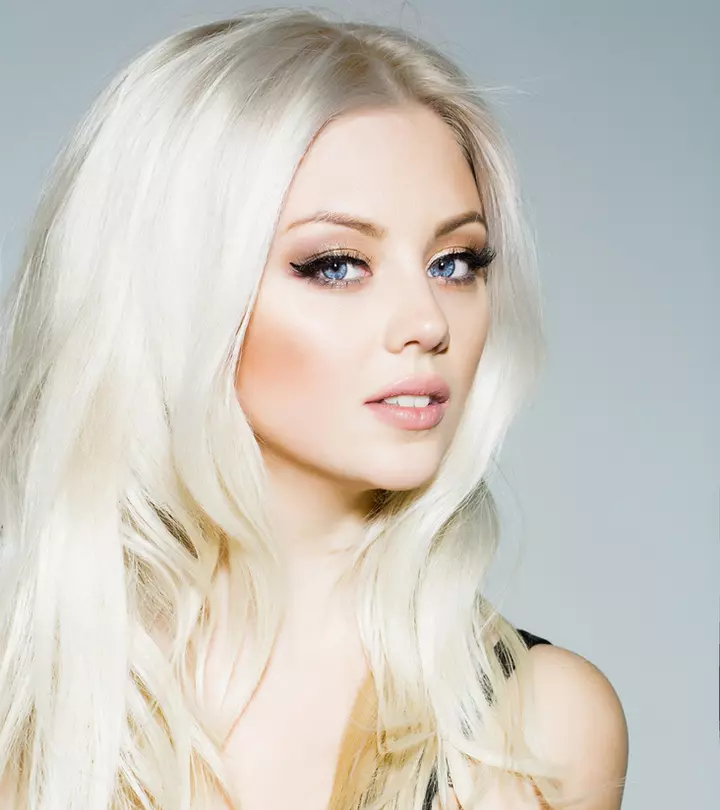
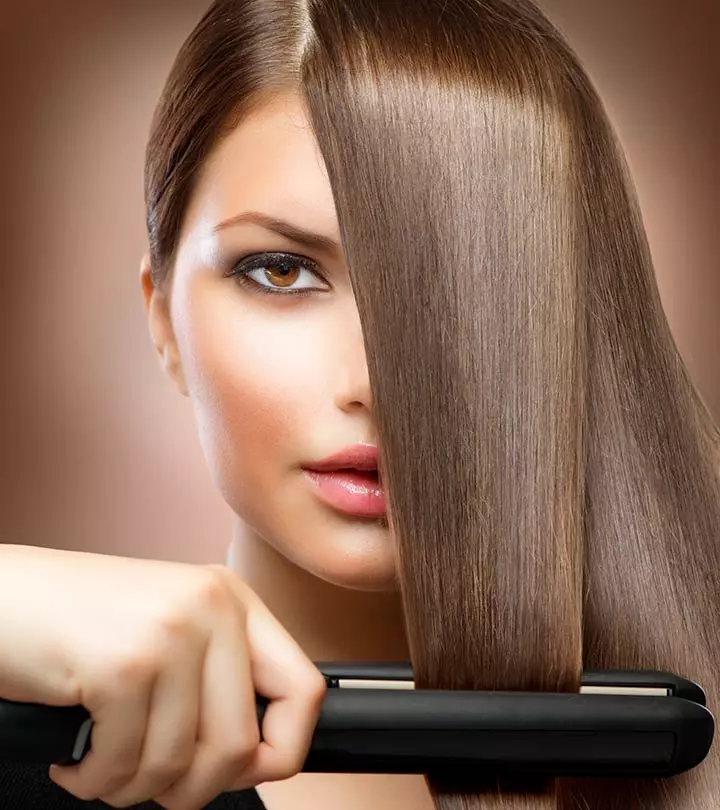
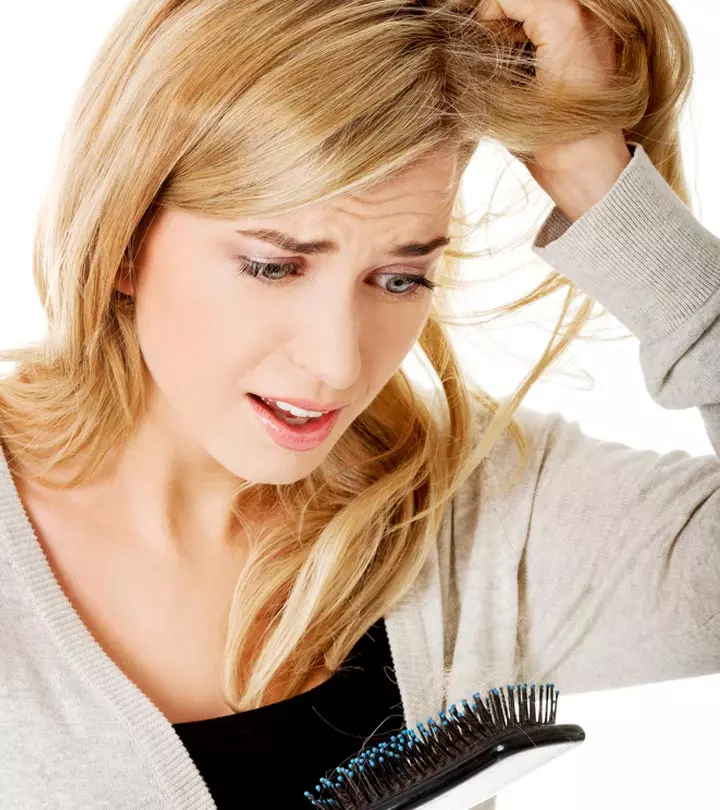
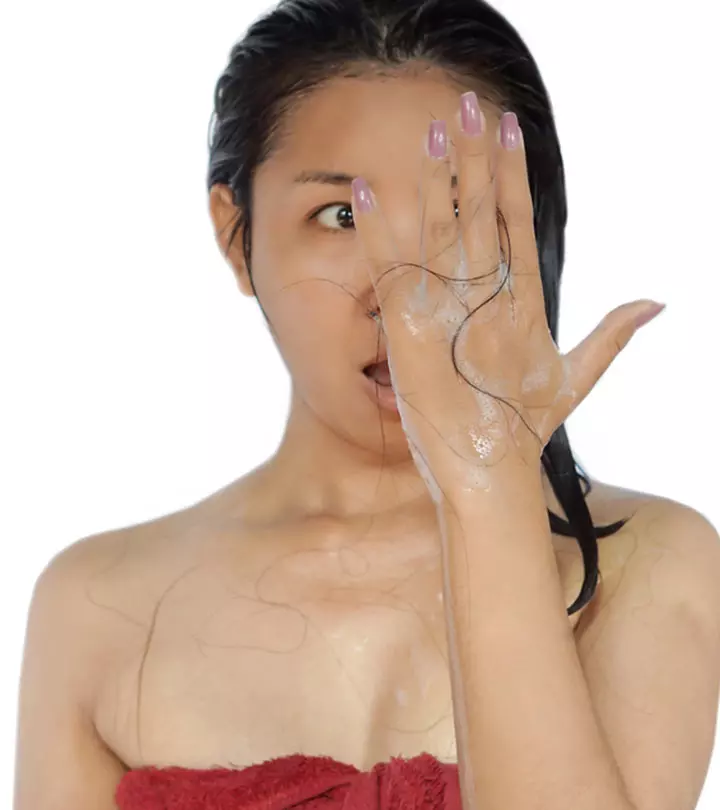

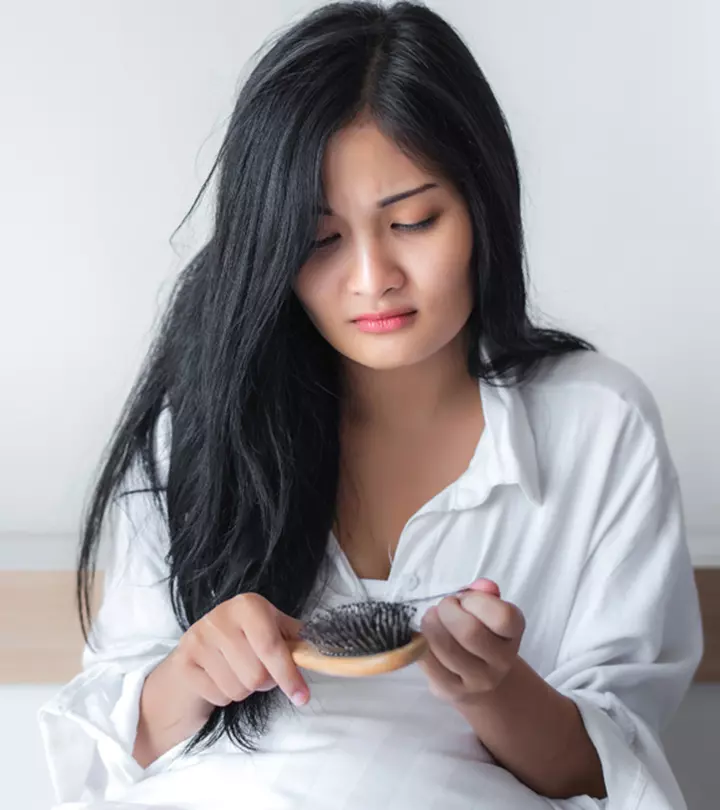
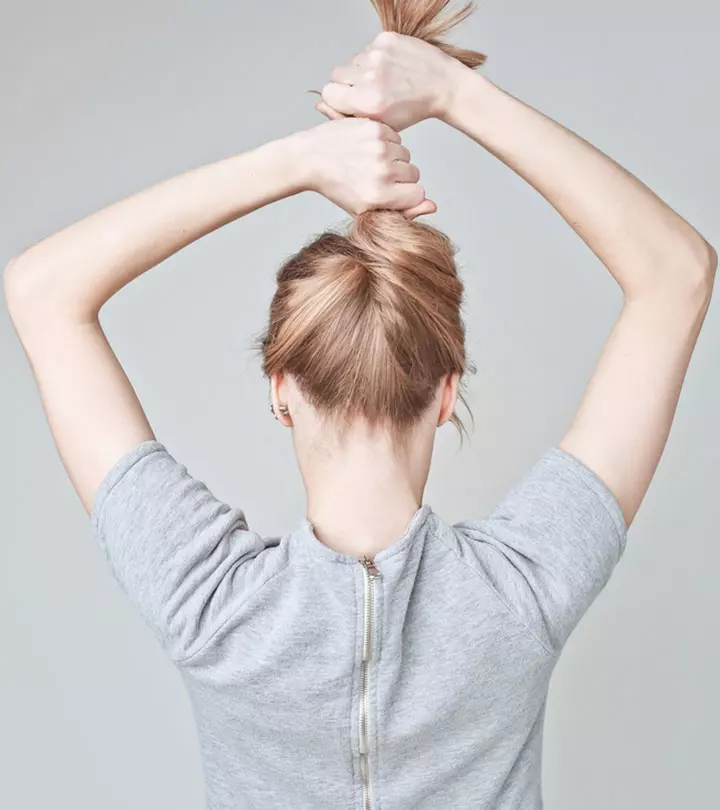
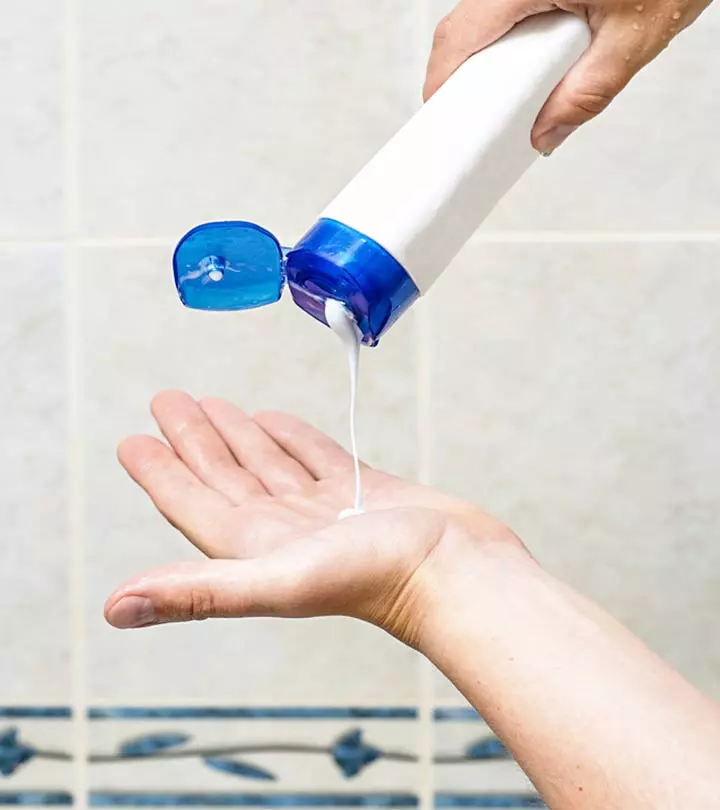
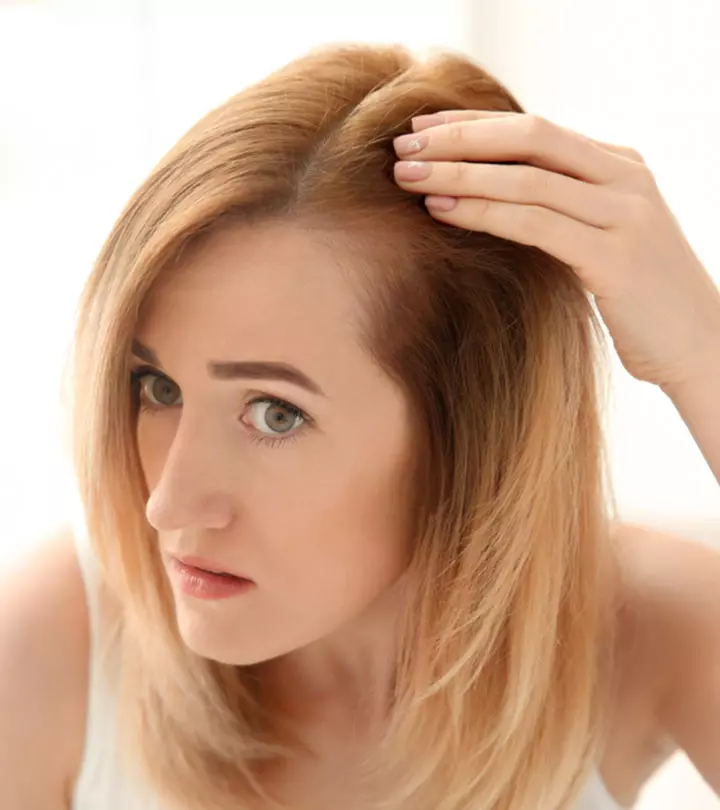
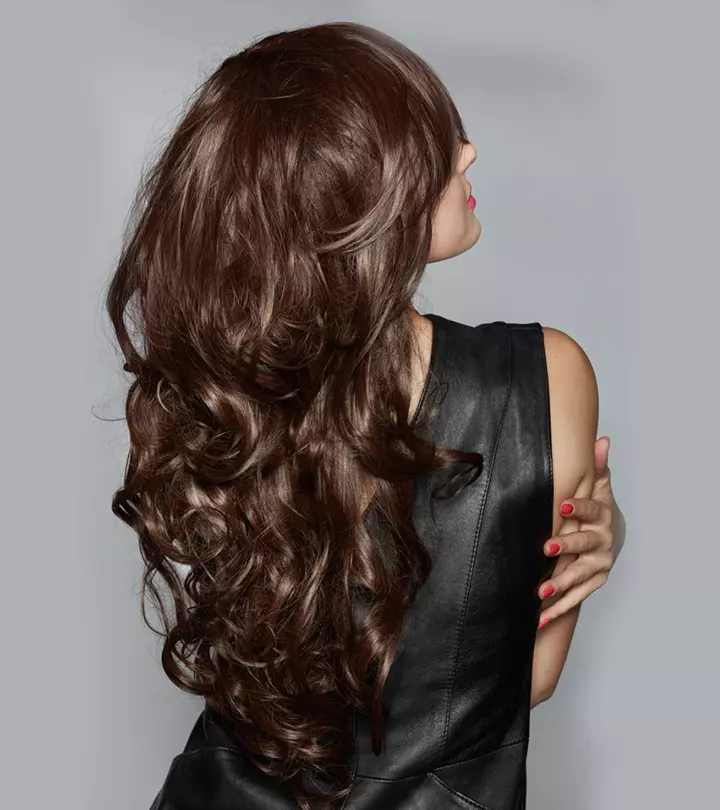
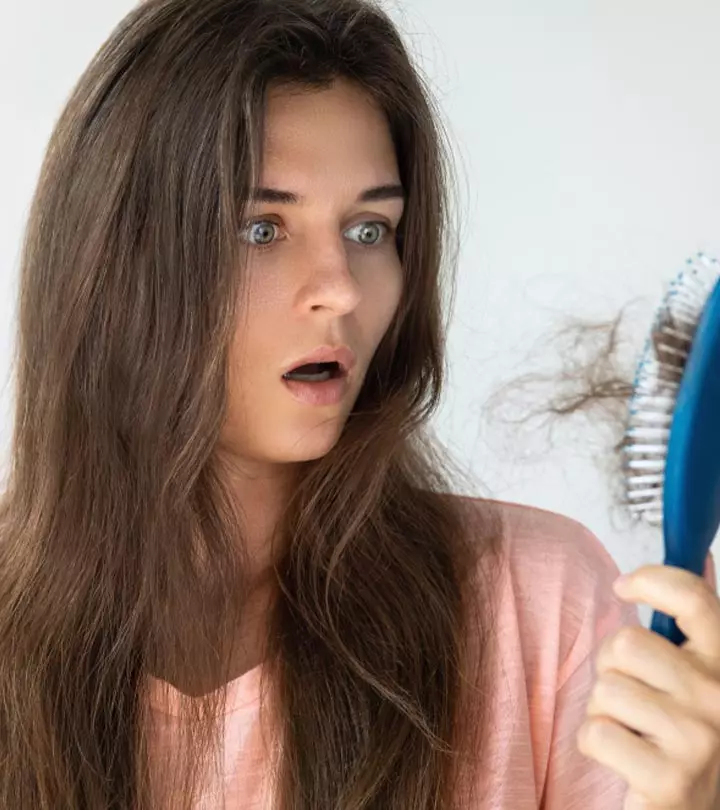
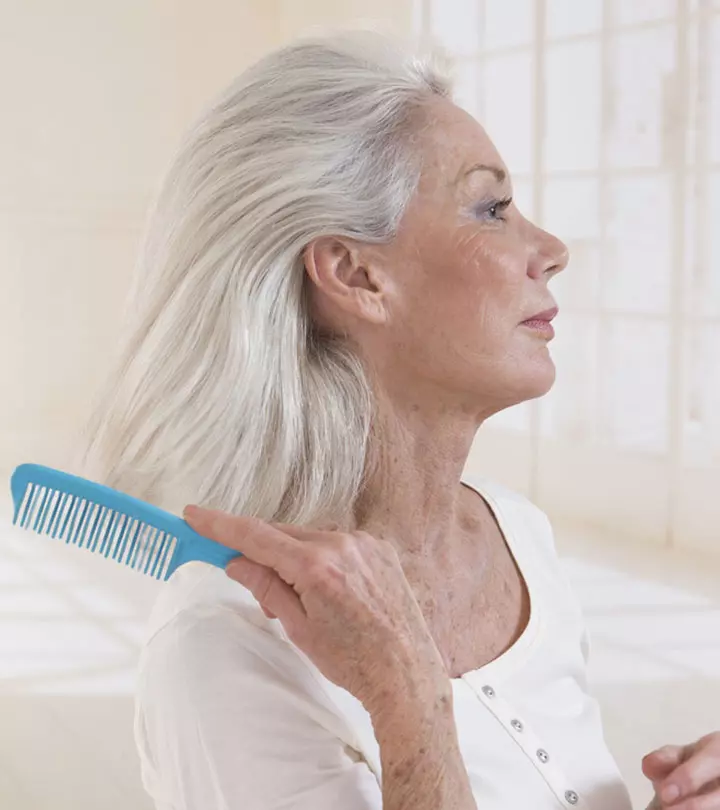
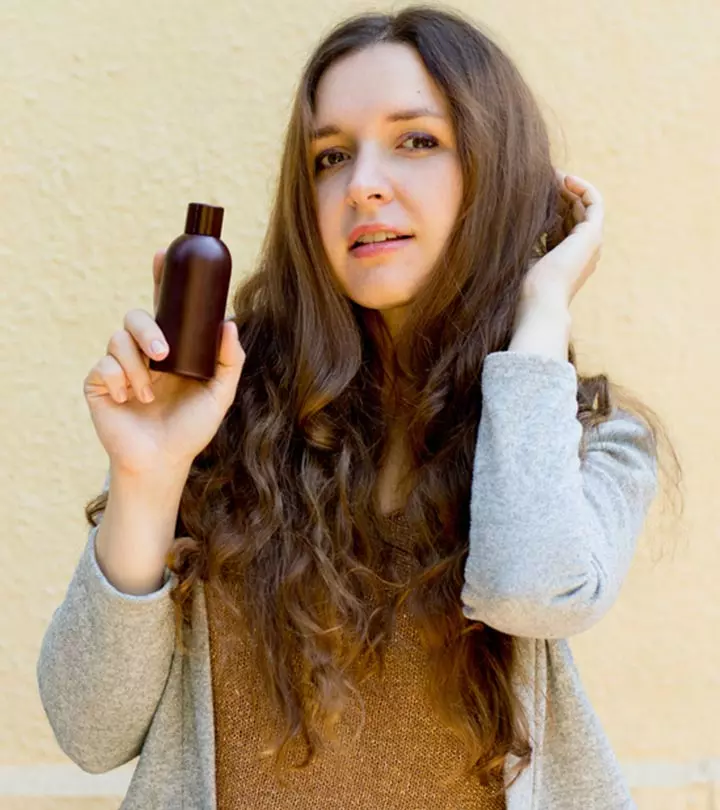
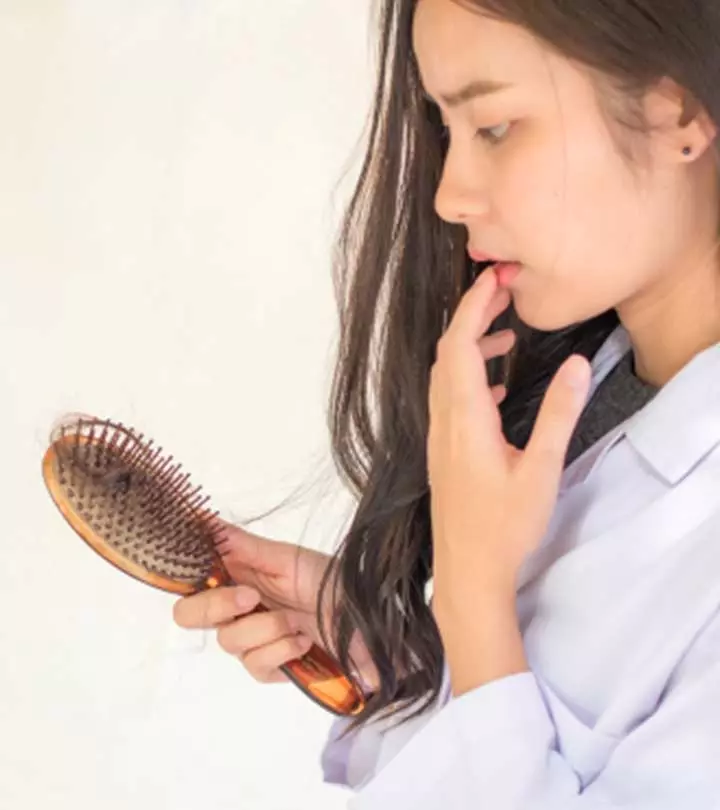

Community Experiences
Join the conversation and become a part of our empowering community! Share your stories, experiences, and insights to connect with other beauty, lifestyle, and health enthusiasts.